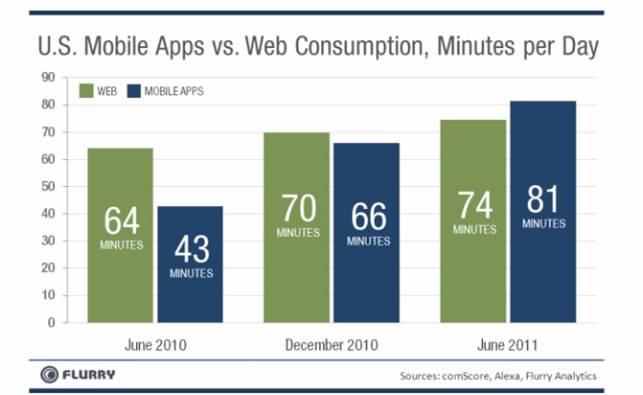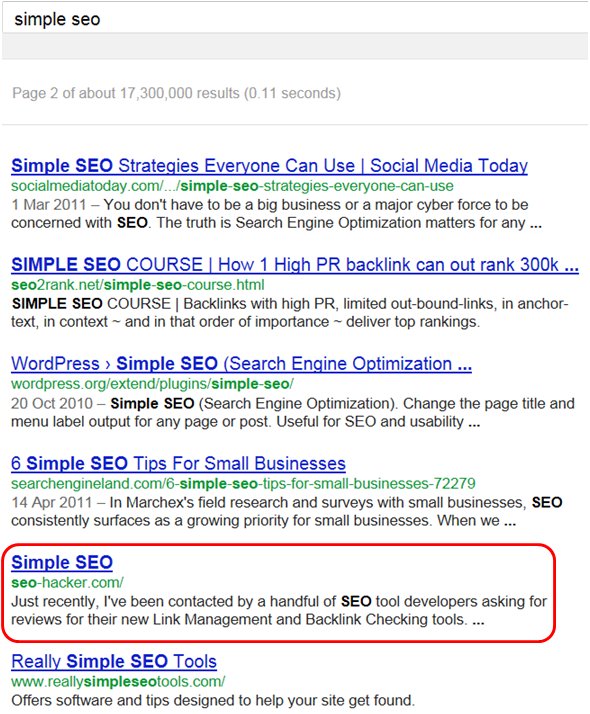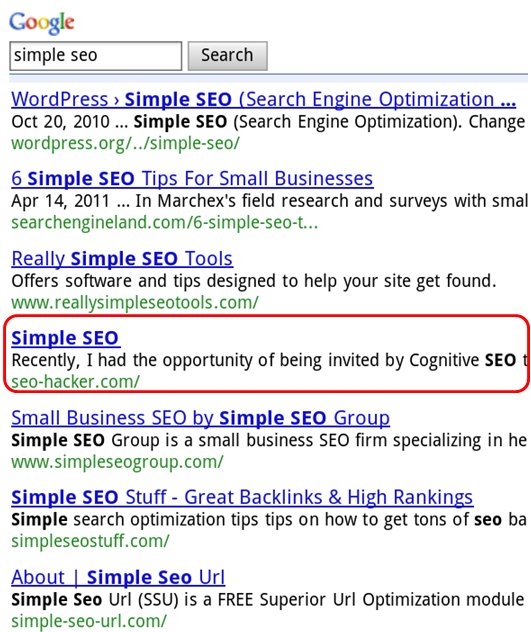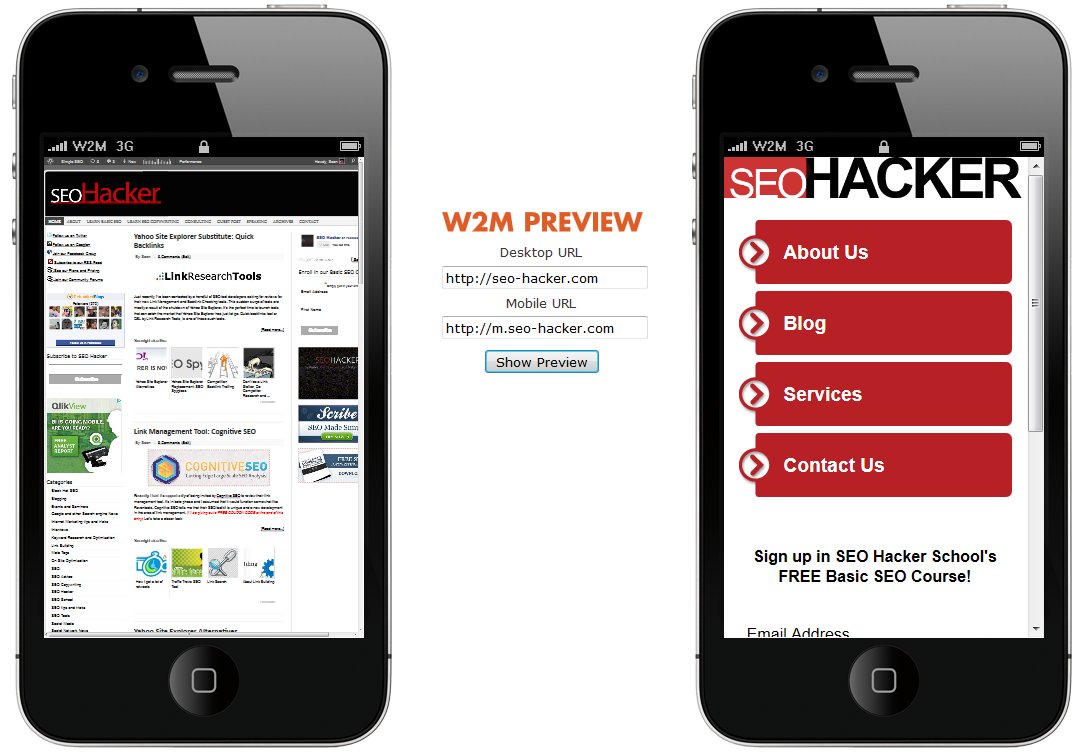Why you Need a Mobile Site for Mobile Search
So I’ve been lingering around with mobile search optimization lately and found out a couple of resources stating that Google will rank websites with mobile versions higher – in mobile search. If this is the case, then we should all be grabbing mobile versions of our sites. You won’t want your competitor to outrank you just because he has a mobile website and you don’t, don’t you?
Let’s go Over the Stats, shall we?
 Mobile Web is growing 8x faster than pc based web
Mobile Web is growing 8x faster than pc based web- 70% of the world’s population now has a mobile phone
- In 2010, mobile subscribers surpassed 5 billion
- 85% of children own a phone while only 73% own books at home
- Since 2008 mobile data traffic is up 3000% and is expected to increase 40 fold over the next 5 years
 January to march 2010, 314.7 million phones were activated
January to march 2010, 314.7 million phones were activated- Android is growing at a rate of 886% – 160,000 android phones are being activated everyday
- There are Twice as many web-enabled mobile devices today as there are internet connected PCs
 Mobile Internet is growing faster than desktop internet ever did.
Mobile Internet is growing faster than desktop internet ever did.- 1,000,000 smart phones are activated every week
- Google reports that mobile search volume is up 130% year-over-year
- 65% online search market share is eclipsed in mobile…where Google owns 95% of search.
 A whopping 53% of Bing mobile queries are targeted on local. Meaning searchers in mobile devices are searching for local stuff like restaurants, tourist spots, the best bars, etc…
A whopping 53% of Bing mobile queries are targeted on local. Meaning searchers in mobile devices are searching for local stuff like restaurants, tourist spots, the best bars, etc…- Ad CTRs on mobile devices were 37% more than desktop
 Consumers are 51% more likely to purchase from retailers that have mobile-specific websites.
Consumers are 51% more likely to purchase from retailers that have mobile-specific websites.- By 2014, it’s predicted that mobile Internet usage will overtake desktop Internet usage.
- One half of all local searches are performed on mobile devices
 Reports have shown an increase of 29% of all mobile searches from the first quarter of 2011. The same rise was measured in mobile retail search traffic that saw a whopping increase of 181%; compared to last year’s figures.
Reports have shown an increase of 29% of all mobile searches from the first quarter of 2011. The same rise was measured in mobile retail search traffic that saw a whopping increase of 181%; compared to last year’s figures.
So how do you Optimize for Mobile Search?
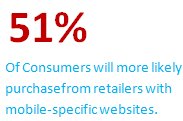 Knowing these stats, we can conclude that mobile is going to be the next big thing. It’s not a matter of ‘IF’ anymore but a matter of ‘WHEN’. And if you’re ahead of the game, you’re almost always going to get a bigger piece of the pie. The question now is, how are you going to be able to optimize for mobile search?
Knowing these stats, we can conclude that mobile is going to be the next big thing. It’s not a matter of ‘IF’ anymore but a matter of ‘WHEN’. And if you’re ahead of the game, you’re almost always going to get a bigger piece of the pie. The question now is, how are you going to be able to optimize for mobile search?
There are some suggestions that Google came up with. And being the one who owns 95% of the entire mobile search market (they own android and Apple doesn’t have a search engine), they declare the factors. And this is what matters most to them:
 Keep the layout simple
Keep the layout simple- Design for thumbs, not mice
- Prioritize content – this is always going to be the case for Google
- Use uniquely mobile features
- Make it easy to convert
- Make sure your mobile site doesn’t limit access to just mobile devices (because search bots are not mobile devices)
- Create and submit a mobile sitemap
- Be sure to optimize your site’s performance to render fast results for users and search engines. Slower load speed can result to a higher bounce rate
- Make sure your mobile URLs are viewable on a mobile device (Google will not deliver them in results unless they are compatible with published mobile markup standards such as XHTML Basic 1.1, XHTML MP 1.2 and WML 1.3)
- Register your mobile site on Google Places, which recently unveiled a location-based recommendation engine called Hotpot
Mobile sites are treated in a different category by search engines – they fall under a ‘mobile’ category. Google has a separate index for mobile content – which is much smaller than the normal Google index. And because this mobile index is smaller, it makes it much easier to get a higher ranking in mobile. The mobile web is new and it is different – and you have to enter new grounds to capture your desired rankings in mobile search.
Mobile Site Ranking Factor
I ran an experiment recently and changed my site name to ‘Simple SEO’. If you don’t remember, it used to be ‘SEO in Simple Terms’. I did this because I was already ranking top on the keyphrase ‘SEO in Simple Terms’ while I was nowhere to be found with the keywords ‘Simple SEO’.
Me and my team built a mobile website just this December for SEO Hacker. We designed it for mobile, and optimized it too. A few weeks after, I was ranking 15th place for ‘Simple SEO’ in the regular Google search.
But what’s even cooler is that when I checked my rankings in Google mobile (which, again, owns around 95% of the entire mobile search market), I was ranking 14th. I used Opera Mobile Emulator to take the screenshot by the way (In case you were wondering).
It’s not really a big, difference (just one rank higher – LOL). But at least we can see the effects of this ‘early’ project that Google has promised. Mobile sites WILL rank higher in mobile search – it’s just a matter of WHEN.
What’s the difference between a Mobile and Regular Site?
Some smart phones and tablets do well to capture your website even without a mobile version – but many of them do so quite poorly. Regular websites are made and optimized for computer monitors which averages 1000 pixels in width. Mobile devices, however, average only around 300 pixels. You can just imagine the discrepancy in viewing a regular website from a mobile device with its limitations. You have to scroll quite a lot and zoom in and out to go through the content. If your readers don’t have much patience to endure through your regular website from their mobile phones, they will bounce – and you will lose them.
You can check out how your website would look on a mobile smart phone so that you would know how easy or frustrating it is for your mobile visitors to go and linger in your website.
Tips for Keeps: If you don’t have a Mobile Website, get one NOW!
Outright Disclaimer: SEO Hacker provides Mobile-Search-Optimized, Mobile Website for as Low as $600 – design, links, logo, Mobile SEO, integration with your regular site, and content easily included. You can contact us if you are interested.

